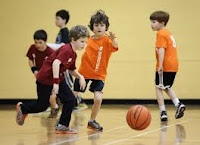Succeeding in College: 10 Measures to Help Students on the Autism Spectrum

“We have a 19-year-old son with high-functioning autism that will be attempting college starting next summer (just 4 classes to start with). This is something he wants to do, although (sadly) my husband and I have our doubts that he will be able to ‘make it’. I know that sounds defeatist, but we’ve lived with him from birth and know how he usually reacts to an entirely new environment. My question is what can we do now to set him up for success? We would love to see him succeed!” Graduating from high school and heading into post-secondary education usually creates a mix of emotions in ALL young people, but it can be an especially challenging time for those with an autism spectrum disorder (e.g., anticipation, fear, exhilaration, doubt). As a mother, you’ve likely witnessed them all in your son. Maybe you’re feeling the same way as you figure out how best to support him as he takes this important step. Here are 10 measures to help students with autistic spectrum disorders th



